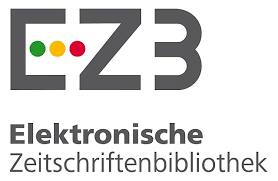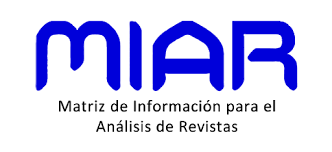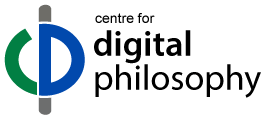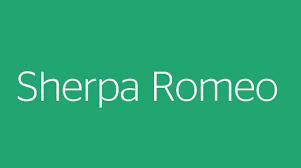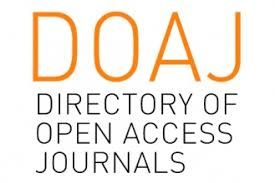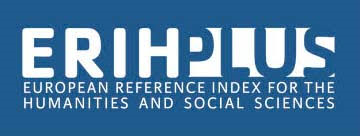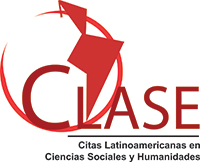Autoconhecimento e virtudes epistêmicas: entre o confiabilismo e o responsabilismo
DOI:
https://doi.org/10.15448/1984-6746.2015.3.24287Palavras-chave:
Autoconhecimento. Epistemologia das virtues. Virtudes intelectuais. Introspecção, Razão.Resumo
O tema deste artigo é o papel do autoconhecimento na vida cognitiva de um sujeito que mereça ser considerado possuidor de conhecimento. A ideia central é que é difícil alcançar o conhecimento de si, pois a introspecção é uma fonte de crenças pouco confiável, e a razão pode ser a fonte de formas extremas de autoengano. Apesar disso, a nossa situação é tal que um agente epistêmico responsável deve buscar constantemente uma melhor compreensão dos seus próprios traços de caráter e crenças, sob o risco de pôr em perigo o seu status de sujeito possuidor de conhecimento.
Downloads
Referências
ARMSTRONG, D. M. Is Introspective Knowledge Incorrigible? In: The philosophical Review, 72:4 (1963), p. 417-432. DOI: https://doi.org/10.2307/2183028
AXTELL, Guy. Introduction. In: AXTELL, Guy (ed.). Knowledge, Belief, and Character: Readings in Virtue Epistemology. Lanham: Rowman & Littlefield, 2000.
BAEHR, Jason. Character, Reliability and Virtue Epistemology. In: The Philosophical Quarterly, 56:223 (2006), p. 193-212. DOI: https://doi.org/10.1111/j.1467-9213.2006.00437.x
BAKER, Gordon; MORRIS, Katherine J. Descartes’ Dualism. London: Routledge, 1996.
CASSAM, Quassim. Self-Knowledge for Humans. Oxford: Oxford University Press, 2014. DOI: https://doi.org/10.1093/acprof:oso/9780199657575.001.0001
CODE, Lorraine. Toward a ‘Responsibilist’ Epistemology. In: Philosophy and Phenomenological Research, 45:1 (1984), p. 29-50. DOI: https://doi.org/10.2307/2107325
COMESAÑA, Juan. Reliabilism. In: BERNECKER, Sven; PRITCHARD, Duncan (eds.). The Routledge Companion to Epistemology. London: Routledge, 2011. p. 176-186.
DRETSKE, Fred. Skeptical Doubts About Self-Knowledge. In: BERNECKER, Sven; PRITCHARD, Duncan (eds.). The Routledge Companion to Epistemology. London: Routledge, 2011. p. 425-432.
EVANS, Gareth. The Varieties of Reference. Oxford: Oxford University Press, 1982.
GERTLER, Brie. Self-knowledge. London: Routledge, 2011. DOI: https://doi.org/10.4324/9780203835678
GETTIER, Edmund. Is Justified True Belief Knowledge? In: Analysis, 23 (1963), p. 121-123. DOI: https://doi.org/10.1093/analys/23.6.121
GOLDMAN, Alvin. Epistemic Folkways and Scientific Epistemology. In: Philosophical Issues, 3 (1993), p. 271-285. DOI: https://doi.org/10.2307/1522948
GRECO, John. Achieving Knowledge: A Virtue-Theoretic Account of Epistemic Normativity. Cambridge, UK: Cambridge University Press, 2010. DOI: https://doi.org/10.1017/CBO9780511844645
______. The Value Problem. In: BERNECKER, Sven; PRITCHARD, Duncan (eds.). The Routledge Companion to Epistemology. London: Routledge, 2011. p. 219-231.
GRECO, John; TURRI, John. Virtue Epistemology. In: ZALTA, Edward N. (ed.). The Stanford Encyclopedia of Philosophy (Winter 2013 Edition). URL = <http://plato.stanford.edu/archives/win2013/entries/epistemology-virtue/>, accessed Nov. 14, 2014.
KELP, Christoph. In Defense of Virtue Epistemology. In: Synthese, 179 (2011), p. 409-433. DOI: https://doi.org/10.1007/s11229-009-9681-y
KIDD, Chad. The Idols of Inner-Sense. In: Philosophical Studies (online), October 28, 2014. DOI: 10.1007/s11098-014-0389-6 DOI: https://doi.org/10.1007/s11098-014-0389-6
KVANVIG, Jonathan L. Virtue Epistemology. In: BERNECKER, Sven; PRITCHARD, Duncan (eds.). The Routledge Companion to Epistemology. London: Routledge, 2011. p. 199-207.
MCGEER, Victoria. The Moral Development of First-Person Authority. In: European Journal of Philosophy, 16:1 (2007), p. 81-108. DOI: https://doi.org/10.1111/j.1468-0378.2007.00266.x
MONTMARQUET, James. Epistemic Virtue and Doxastic Responsibility. Lanham, MD: Rowman & Littlefield, 1993.
MORAN, Richard. Authority and Estrangement: An Essay on Self-Knowledge. Princeton: Princeton University Press, 2001. DOI: https://doi.org/10.1515/9781400842971
NISBETT, Richard E.; WILSON, Timothy DeCamp. Telling More Than We Can Know: Verbal Reports on Mental Processes. In: Psychological Review, 84:3 (1977), p. 231-259. DOI: https://doi.org/10.1037/0033-295X.84.3.231
PRITCHARD, Duncan; TURRI, John. The Value of Knowledge. In: ZALTA, Edward N. (ed.). The Stanford Encyclopedia of Philosophy (Spring 2014 Edition). URL = <http://plato.stanford.edu/archives/spr2014/entries/knowledge-value/>, accessed Nov. 11, 2014.
RAMSEY, Frank. Knowledge. In: RAMSEY, Frank. The Foundations of Mathematics and Other Logical Essays. London: Routledge and Kegan Paul, 1931. p. 110-111.
RUSSELL, Bertrand. The Problems of Philosophy. Oxford: Oxford University Press, 1912.
SCHMID, Ulla. Where Individuals Meet Society: The Collective Dimensions of Self-Evaluation and Self-Knowledge. In: ZIV, Anita K.; LEHRER, Keith; SCHMID, Hans B. (eds.). Self-Evaluation: Affective and Social Grounds of Intentionality. Dordrecht: Springer, 2011. p. 253-273. DOI: https://doi.org/10.1007/978-94-007-1266-9_14
SILVA FILHO, Waldomiro; DAZZANI, Maria Virginia. Self, Sign, elief, and Agency. In: Interacções, 24 (2013), p. 70-92.
SOSA, Ernest. The Raft and the Pyramid: Coherence Versus Foundations in the Theory of Knowledge. In: Midwest Studies in Philosophy, 5 (1980), p. 3-25. DOI: https://doi.org/10.1111/j.1475-4975.1980.tb00394.x
SOSA, Ernest. Consciousness and Self-Knowledge. In: GERTLER, Brie (ed.). Privileged Access: Philosophical Accounts of Self-Knowledge. Farnham: Ashgate. p. 253-262, 2003.
ZAGZEBSKI, Linda. From Reliabilism to Virtue Epistemology. In: AXTELL, Guy (ed.). Knowledge, Belief and Character: Readings in Virtue Epistemology. Lanham: Rowman & Littlefield, 2000. (e-book) DOI: https://doi.org/10.5840/wcp20200053
______. Virtues of the Mind. Cambridge, UK: Cambridge University Press, 1996.
Downloads
Publicado
Como Citar
Edição
Seção
Licença
Direitos Autorais
A submissão de originais para a Revista Veritas implica na transferência, pelos autores, dos direitos de publicação. Os direitos autorais para os artigos publicados nesta revista são do autor, com direitos da revista sobre a primeira publicação. Os autores somente poderão utilizar os mesmos resultados em outras publicações indicando claramente a Revista Veritas como o meio da publicação original.
Licença Creative Commons
Exceto onde especificado diferentemente, aplicam-se à matéria publicada neste periódico os termos de uma licença Creative Commons Atribuição 4.0 Internacional, que permite o uso irrestrito, a distribuição e a reprodução em qualquer meio desde que a publicação original seja corretamente citada. Copyright: © 2006-2020 EDIPUCRS





